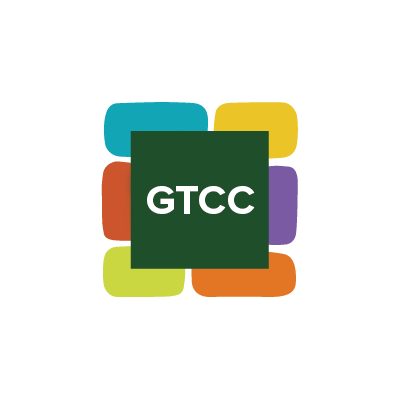Learn more about our GTA program
Graduate Teaching Assistantship Program
Graduate Teaching Assistants in the English department receive nationally recognized training in the art of teaching writing and rhetoric. As instructors of the University Composition Program, GTAs prepare students to write, research, and design documents across audiences, genres, and contexts.
The Graduate Teaching Assistantship (GTA) program in the Department of English is open to qualified M.A. and M.F.A. students. Typically, students awarded GTAships serve as instructors in the first-year composition course, CO 150: College Composition. In some cases, they serve as research assistants or support assistants. A limited number of assistantships at PLACE are available for TEFL/TESL students.
The assistantship positions are limited and awarded on a competitive basis to begin in the fall semester. The positions may be awarded to accepted incoming students for two years (M.A.) or three years (M.F.A.), and to continuing students for one year (M.A.) or two years (M.F.A.). These positions pay a monthly stipend and cover resident or non-resident tuition for first-year GTAs and resident tuition for second- and third-year GTAs. (It is assumed that first-year domestic non-residents who are awarded GTA positions will establish Colorado residency by the beginning of their second year in the program.)
What kind of commitment can you expect as a GTA?
An assistantship at Colorado State University is defined as a half-time position requiring a commitment of 20 hours per week. The Department administration has set the basic assignment for meeting the 20-hour requirement as teaching three sections of CO150 (1 section in the fall and 2 sections in the spring), participating in a significant training commitment in the first year of the GTA, teaching three sections of CO150 (2 sections in the fall and one section in the spring) in the second year of the GTA and participating in ongoing composition professional development. Three sections is also the normal course load for the third year of funding for MFA students.
The English Department Graduate Teaching Assistant is recommended to hold a full-time course status (9 credit hours). GTA responsibilities include but are not limited to: Teaching three CO150 courses throughout the academic year, registering for all GTA required courses (E607A/E684A), attending all required training, workshops, conferences, and colloquia, as well as mentoring and conferencing with students.
For more information about teaching assistantship policies, stipend and benefits information, and general questions, please consult the Graduate Teaching Assistant Handbook.
The Application
The GTA application consists of three sections: Background and Experience; Statement of Interest; and Statement on Learning & Writing.
Background and Experience
- This form asks for identifying information, relevant academic, work, and volunteer experience related to teaching, mentoring, writing, and leadership as well as a list of academic work in composition and writing studies. In section 6, please list any honors and awards that you have received.
Statement of Teaching Interest
- The Statement of Teaching Interest, as opposed to the Statement of Purpose in your program application, focuses on your interest in joining our composition teaching faculty through a GTA position. This is your opportunity to express your interest in composition pedagogy and practice, to discuss your teaching-related training and/or experience (e.g., tutoring, community writing workshops, etc.), to explain how the GTA position will enhance your graduate studies and/or career plans, and to clarify any other information you’d like us to know about your interest in teaching. CO150: College Composition is a required course at CSU, taken by over 4,500 students annually. Please tell us what you hope to bring to and learn from this important teaching position.
Statement on Learning & Writing
- Please provide a short essay (500-700 words) focusing on your response to one of the following topics:
- Describe a teacher/mentor who had an impact on you. How might they influence your approach to teaching college composition at CSU?
- Describe a moment when you learned something important about writing. What was the context for your learning? How might that experience influence your approach to teaching college composition at CSU?
GTA Selection Process
Our GTA selection committee is made up of faculty members from the different programs within the English department. This committee reads all the files of applicants recommended for GTAs by the individual graduate programs.
The GTA selection committee chooses GTAs with three factors in mind: 1) the strengths of the individual applicants; 2) balance across the five graduate programs in the department; and 3) the needs of the Composition program. The committee respects the rankings of the individual programs and takes care to preserve these rankings, but they are free to—and do—rearrange the rankings based on such factors as teaching experience, academic record, and the committee’s own response to the application materials.
First-round GTA offers are usually made in early March. Students offered GTAs will be given a deadline for acceptance. As not all applicants will accept the offer, a second and sometimes a third round of offers will go out in the late Spring or, occasionally, into the summer.
HOW TO APPLY
Prospective students: Submit your separate GTA application along with your program application to your online Graduate School application profile.
Note: For M.F.A. Creative Writing applicants, your GTA application and program application are due January 1. For those applying to an M.A. program, your GTA application and program application are due January 15.
Current graduate students applying for a GTAship: You must submit the completed application to the Graduate Programs Assistant at Emily.Dailey@colostate.edu
The Professional Internship in English (PIE)
All Composition Program GTAs participate in the Professional Internship in English (PIE), which includes the writing theory and practice course (E607A), ongoing professional development, small group discussions and mentorship, course observations, and colloquia designed to help you learn about the field of composition and rhetoric, including research on teaching writing at the collegiate level, rhetorical theory and application, and pedagogical approaches for writing instruction.
Our goal is that PIE not only prepares you to teach CO150 with confidence and expertise, but that it contributes to a sense of community and professional relationships that foster ongoing reflection and learning about our students and ourselves as teachers. Because we are a community where learning happens best when everyone brings their best selves, GTAs are expected to participate in PIE like any other graduate course: with curiosity, questions, and ideas.
PIE is sequenced to build upon your knowledge and experience
Each semester of the program entails different requirements such as pre-semester orientation, small group mentorship, peer observation, and the completion of coursework in composition pedagogy. To learn more about the sequence, please visit the Graduate Teaching Assistant Handbook.

Graduate Certificate in Teaching

Graduate students (with or without an assistantship) may also elect to participate in additional teacher trainings so they can graduate with a Graduate Teaching Certificate of Completion, which is offered by The Institute for Learning and Teaching (TILT) at Colorado State University. The Institute for Learning and Teaching advances research, promotes effective practices, and provides direct support to faculty and students to enhance learning, teaching, and student success.
The Graduate Teaching Certificate of Completion Program expands and enhances department opportunities for graduate students interested in pursuing teaching as a professional career and recognizes this accomplishment at graduation and on university transcripts.
The program offers a self-directed course of study, so you can focus on the aspects of teaching in which you are most interested, whether you want fundamental knowledge about post-secondary teaching, or want to gain expertise in specific areas. You can enroll in the certification program at any time. You will create a relevant and meaningful course of study that is typically completed in one year.
The general requirements and instructions for earning a certificate are outlined on the TILT website.